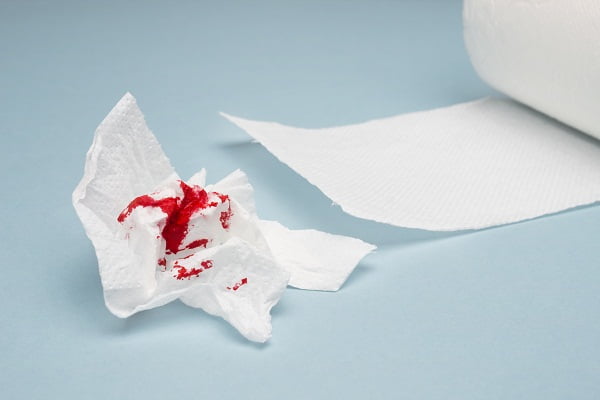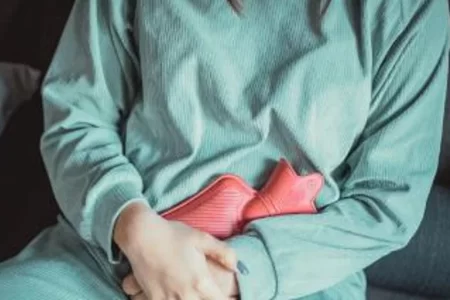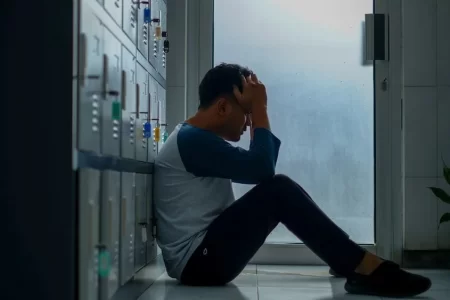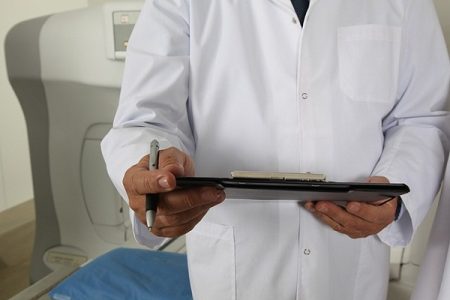Bleeding Hemorrhoids (Piles): Why Do Hemorrhoids Bleed for Many Weeks?
- Updated on: Jul 11, 2024
- 4 min Read
- Published on Apr 19, 2021


Bleeding Hemorrhoids (Bleeding Piles)
Hemorrhoids (also called piles) are pathologically changed blood vessels located around the anus in the anal canal. Hemorrhoids do not cause any problem unless they become inflamed or swollen. Hemorrhoids may be internal and external.
Symptoms may include itching, rectal pain and bleeding and they subside in several days to a few weeks. There is less or no bleeding involved in hemorrhoids depending on the severity, but the lumps and swelling around the anus is extremely painful particularly during bowel movements and while sitting.
Hemorrhoids may bleed, especially if the hemorrhoids are internal hemorrhoids. Though bleeding may not last for a long time but patients often report bleeding for a few days to several weeks.
Why do certain hemorrhoids bleed?
Bleeding of hemorrhoids is a warning sign of hemorrhoid flare ups.
The most common cause of bleeding hemorrhoids is the pressure exerted to the anus. It can occur if you are standing or sitting for a long period of time. It usually happens when the person is going to the toilet for bowel movements. Read: Lump Near Anus.
The added pressure on hemorrhoids in this situation causes stretching, bursting, and bleeding of hemorrhoids. Since this happens daily, hemorrhoids do not get enough relief to heal and they can bleed for several weeks.
A poor diet without sufficient fiber can lead to constipation which can in turn lead to bleeding piles. Try to avoid consuming foods that can make your stool hard such as meat, fat, and fried products. Hard stools can make bowel motion even harder causing stress that may result in bleeding of hemorrhoids.
Bleeding hemorrhoids: Is a hemorrhoid bleeding an issue to worry?
If somebody has external hemorrhoids, bleeding piles may not be an issue as you can feel and see them. But if a patient notices blood within the feces or seepage in the toilet bowl, the condition may require an urgent medical attention as such an internal bleeding may lead to serious complications. Generally, bleeding of hemorrhoids due to inflammation but not associated with pain is harmless. It may go away after a few days.
How do you detect blood from hemorrhoids in a self exam?
Hemorrhoids can shed blood internally and also externally. Both forms of hemorrhoids bleeding can be perceived during bowel movements.
Sometimes, the blood from external hemorrhoids tends to form a clot called a thrombosed hemorrhoid.
Blood from bleeding piles is generally vibrant red.
Blood from an interior hemorrhoid can be noticed in the stools. Blood due to external piles can also be sometimes seen in the toilet bowl or a tissue paper. You can notice the blood from an external hemorrhoid to the touch also.
If you’ve got an external hemorrhoid, you will likely experience some type of hindrance in your rectum during bowel movements.
How long bleeding of piles may continue?
Hemorrhoids can possibly bleed for several weeks. This is common in people with hemorrhoid distress. If they are left unattended, they can become more serious, painful, and inflamed. Immediate medical diagnosis and treatment is recommended to treat piles if the bleeding does not stop after a few days.
When to contact doctor if you notice bleeding hemorrhoids
Although you should not wait for the piles to bleed, but if you notice bleeding hemorrhoids, you should immediately contact a doctor. There are treatments available that can help relieve the symptoms or completely remove the problem-causing lumps in the anus.
Sometimes, the lumps that bleed may not be hemorrhoids but something else that may be more serious. It is therefore important you consult a specialist when you notice signs of hemorrhoids particularly if you observe bleeding hemorrhoids (bleeding piles).
Why do hemorrhoids itch?
Often people are curious to know, why do hemorrhoids itch? Anal itching (medically known as pruritis ani) is the irritation of skin at the opening (anus) of the anal canal through which stool moves out of the body. The itching generally increases the desire to scratch the area near anus.
In some cases, itching may be a reaction to certain chemicals present in the stool, but it more often signifies some sort of inflammation near the anus. The intensity of itching and the amount of inflammation increases with scratching and the presence of moisture near the anus.
Itching can occur if you have hemorrhoids, but it is not the only reason for itching around the anal canal. External hemorrhoids can cause painful burning along with itch. This may be due to a prolapsing internal hemorrhoid that slips through the anus. Such a slipped hemorrhoids brings mucus along with it that can irritate the sensitive skin around the anus. This irritation can cause itching in many patients. When a hemorrhoid remains prolapsed, the anal mucosa continuously produce the mucus causing continued irritation around the anus. Further, when the stool mixes with the mucus and leak out of the anus, the irritation can further increase.
Many over-the-counter (OTC) and prescription medicines are available for the treatment of anal itching due to hemorrhoids or other cause in the form of ointments, creams, gels, foams and pads. You should consult a doctor if your hemorrhoids cause itching.












